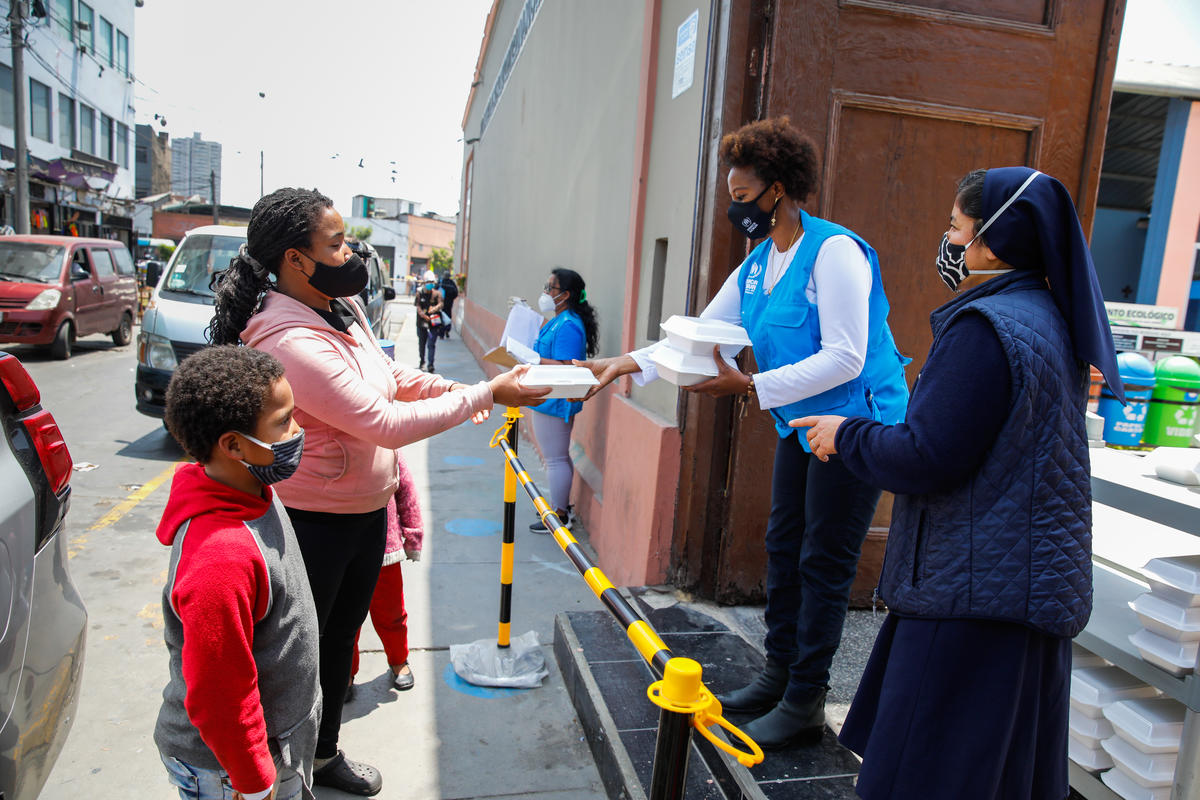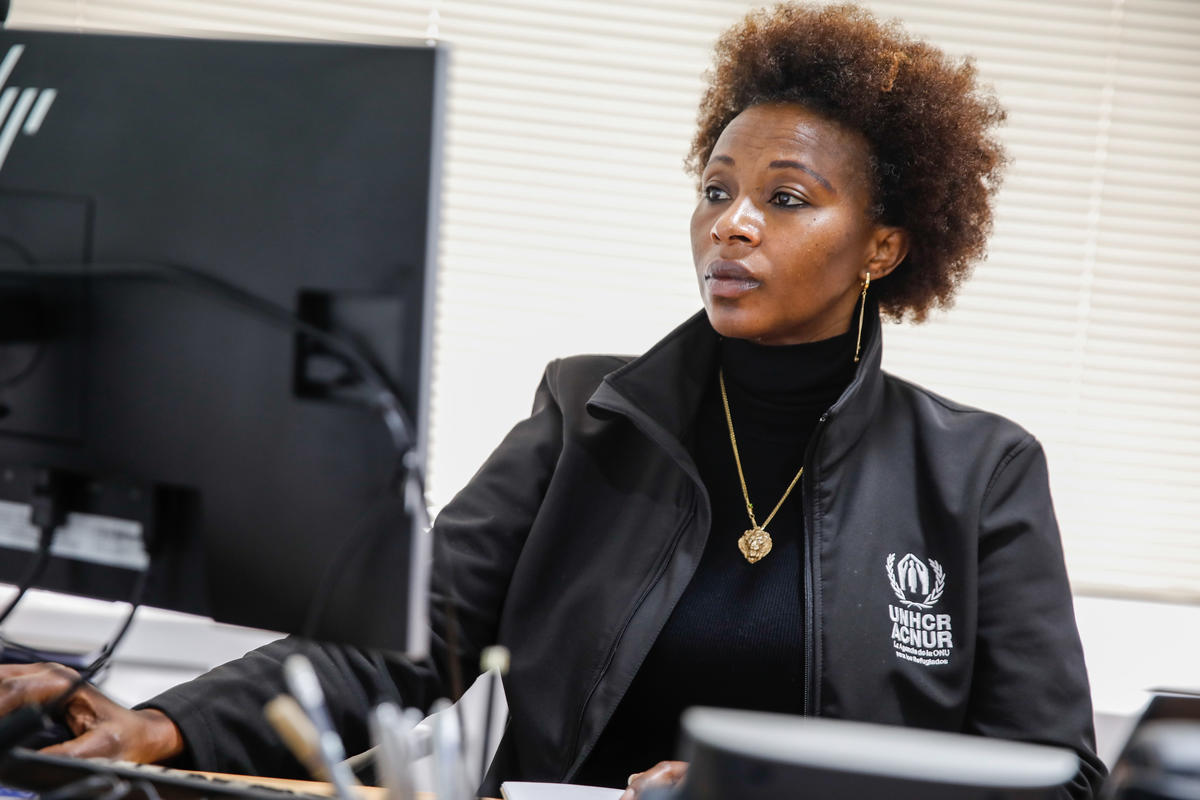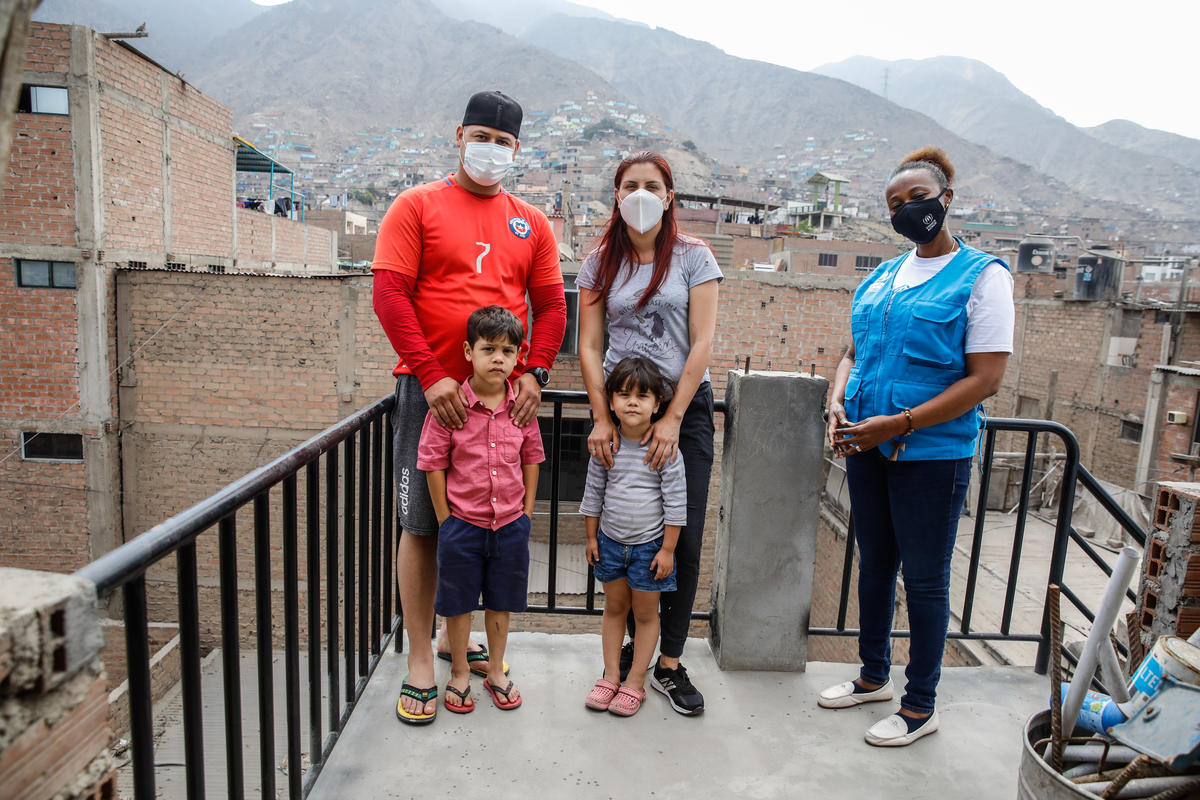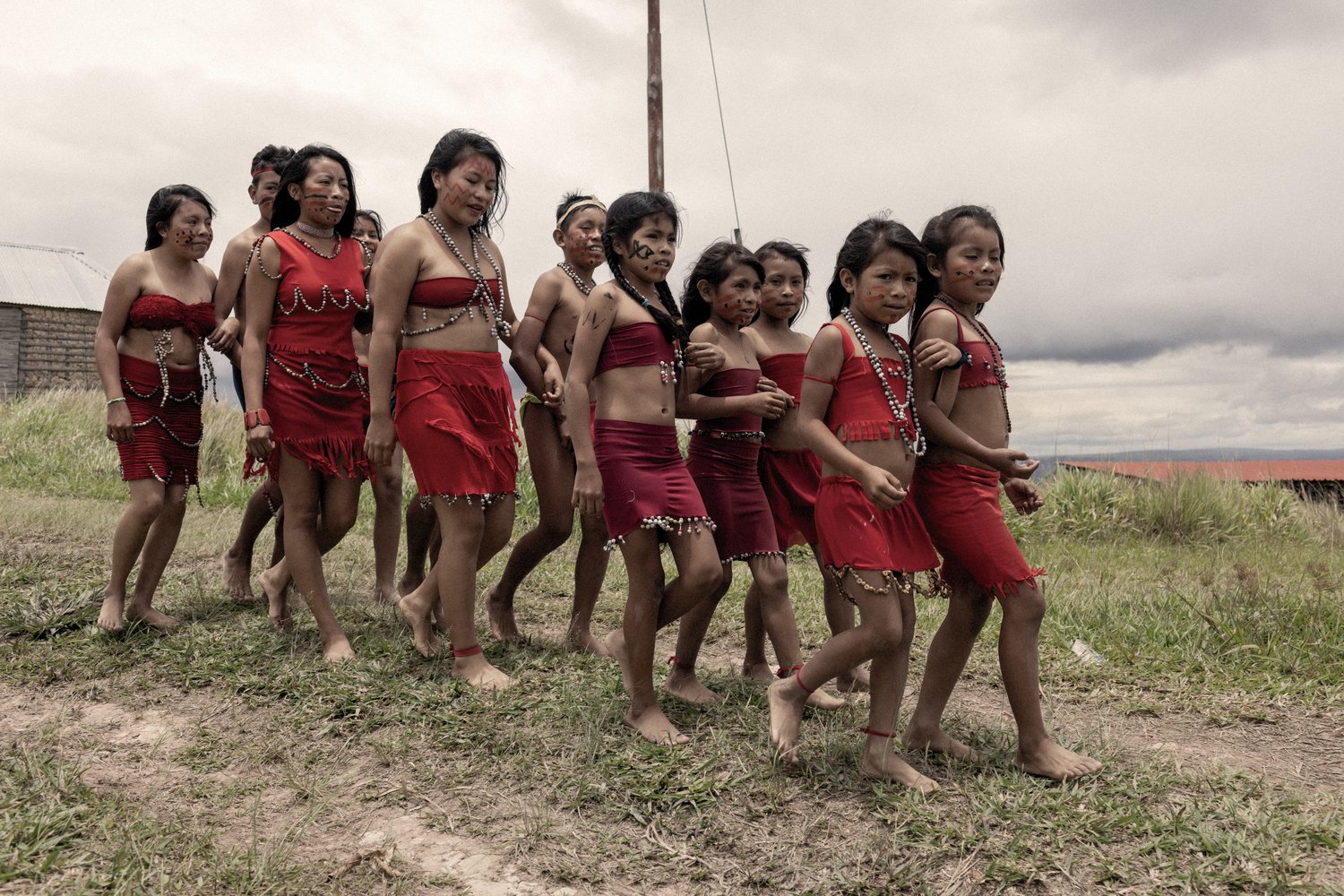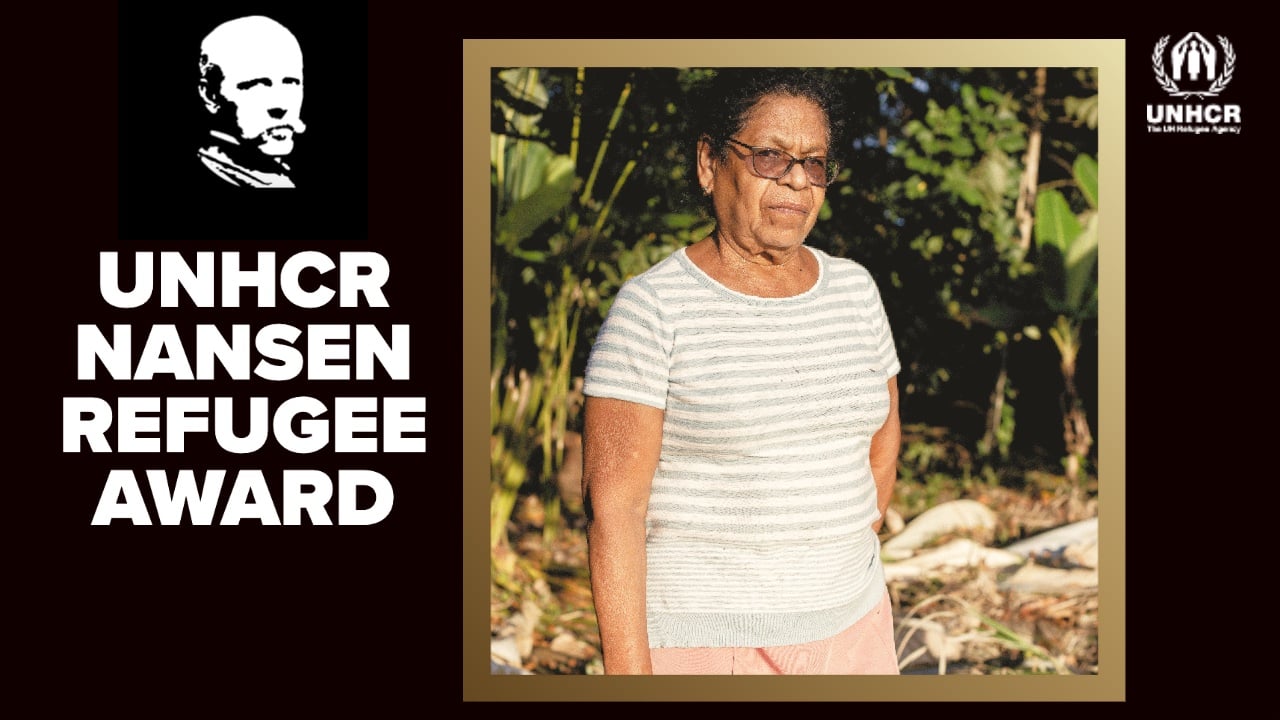'Now we have room to speak. But we still have a long way to go'

'Now we have room to speak. But we still have a long way to go'
Twenty-five years ago in Beijing, government delegates, human rights activists and civil society leaders from around the world gathered at the Fourth World Conference on Women to envision and then plan a better future. But could they ever have imagined 2020?
We face a global pandemic that has already claimed one million lives. The virus has also wiped out jobs, threatened to exacerbate hunger and interrupted the education of more than 1.5 billion students – and many of the poorest, especially girls, may never go back to school.
The Beijing Platform for Action outlined 12 areas of concern and set goals for reducing inequality for women, combatting sexual and gender-based violence, improving access to education for girls, and more, by 2030. UNHCR, the UN Refugee Agency, has worked to make these goals a reality for the women and girls it serves: refugees, internally displaced people and those who are stateless (often due to national laws that discriminate against women or particular religions or ethnic groups). But in what ways are women better off today? Where have we made progress, and where have we backslided?
We spoke to UNHCR Senior Field Officer Juliette Murekeyisoni for a personal perspective. Born in Burundi in 1973 to Rwandan refugee parents, Juliette witnessed the aftermath of the 1994 Rwandan genocide as women and children began pouring into Burundi. Barely out of high school, she snuck away from her family and into Rwanda, where she began what would become a lifetime of working with refugees – mostly women and children. Now a field officer for UNHCR in Peru, Juliette works with people who have fled violence and instability in Venezuela. COVID-19 has made her work more difficult. Sexual and gender-based violence is on the rise, landlords are evicting people and many refugees have no way to earn money. But Juliette says women and girls are better off than they were 25 years ago.
Below is an excerpt from telephone and email conversations between Juliette and UNHCR editor Sarah Schafer.
Can you tell me about yourself?
I was born in Burundi and my parents were refugees. They fled persecution and ethnic violence in Rwanda in 1959. Growing up was rough. At 13, I sold peanuts and my mother would sew to pay for food and rent.
We built a mud house, and I would cut the grass to put on the house’s roof regularly, because after some time it gets old and it rains inside. I would walk barefoot for over 2 kilometres to fetch water, until a Swiss couple offered me water from their house. To thank them, we invited them to our house, and we cooked a small dinner. That night it rained, and the food was full of water. Soon after they had to leave the country, and when I went to say goodbye they gave me money to buy a corrugated iron roof and that’s how we got a proper roof. No more cutting grass, thank God. I have always been hard-working, thankful and ready to find creative solutions.
In 1994, shortly after you graduated from high school, the Rwandan genocide began, and you felt moved to help. Can you tell me about that?
I was always saying, ‘I’m going to go home [to Rwanda]. I will not die as a refugee.’ During the genocide, I watched Rwandan refugees flood into Burundi, many of them with machete wounds, and decided I had to go help. Without telling my family, I left in the middle of the night and crossed the border into Rwanda. Volunteers were helping at the hospitals and others searched for people who were still alive. I joined them. The place was horrific. Butchered corpses covered the ground, and the stench of death was everywhere. That smell will never leave my head. What do you do? Sit down and cry? No. There is no time for that.
"During the genocide, I watched Rwandan refugees flood into Burundi, many of them with machete wounds, and decided I had to go help."
In 1995, at the Beijing women’s conference, participants pledged to abolish inequality, decrease gender-based violence and more. Do you think we’ve come far enough in 25 years?
There’s positive movement. For example, I’m so proud to say that Rwanda is the first country in the world where a majority of high-level positions in Parliament are held by women (about 60 per cent). Women are moving ahead, and girls are going to school.
We see women becoming presidents and going to space. But not all girls have the same opportunities. The other day I met a Venezuelan refugee girl who is studying to become a beautician, but she wanted to become a pilot. This little girl should have the possibility to make her dreams come true and the education she needs to become the best version of herself. That is why we need to continue working together with governments, communities and UN agencies to close the gaps for girls everywhere.
You worked for UNHCR in Yemen in 2008. Can you tell me what you did there and in particular about your work with women and girls?
In Sana’a I was a community services officer working with mostly Somali refugees and their host community. The refugees lived in the city and not in a refugee camp, which made it more difficult to reach and support them. We established a community outreach worker programme, and made sure that women were included.
It was very important to have as many women as possible working as community leaders because you would only see men as leaders. Soon men and women were working together. That is one of the accomplishments that made me feel very proud because you could actually see the change.
What were some things that you tried in Yemen that were new or different at the time?
First we established women’s and youth associations. We conducted a lot of trainings on sexual and gender-based violence (SGBV) with women and girls, but I thought that we should also train those who might commit this type of violence, primarily men. We started trainings with the youth association and the outreach workers, where young men and women were already working together. Of course, you can imagine, to talk about such a thing with men at the time was a taboo. They were embarrassed in the beginning but slowly they got more interested and invested in the subject. Later, we also conducted trainings with men community leaders. This was a big risk. I was not even sure if they would ever talk to me again. Instead, they requested more training on the subject. Soon, the trainees started building awareness in their communities.
Can you tell me more about the work you’ve done on issues related to SGBV?
When I was in Yemen, I met several women who were really having a hard time, or who would develop an illness, because of female genital mutilation. My team and I had regularly met over tea with women and youth. Most were against this procedure but felt they could not prevent it. Some even told us, ‘Oh, I left my daughter with the grandmother and I came back, and she was circumcised.’ I was like, “What?!”
I supported them so they could find the strength to stand up to the elder generation and its traditions. I also met with three older women who were conducting these procedures. Eventually they confessed that it was their only income. So, we included them in our (UNHCR’s) livelihoods programme. Outreach workers closely monitored them ensuring that they were no longer doing the procedures. It was not easy. But even if you save one girl, you can make a difference.
"I hope we can continue working towards gender equality in the UN to be an example for others."
How has the coronavirus pandemic affected progress on women’s issues? For example, SGBV tends to rise in situations such as this. Have you seen that in Peru?
Oh my God, yes. Since the pandemic, femicides have increased in Peru. UNHCR was informed by local authorities that they received 50 per cent more emergency calls from women at risk of gender-based violence since March.
That is why UNHCR rented safe places where we can bring SGBV survivors for a couple of days. After that, we can place them in a safe home, so that they are not forced to go back to their partners. UNHCR staff follows up with them to provide psychosocial support and work on a more sustainable solution, such as providing them with cash for rent and food for a couple of months.
Is it hard for these women, and others, to earn a living during the pandemic?
In Peru, over 90 per cent of Venezuelan refugees and migrants work in informal jobs and they earn their money daily. They have felt a strong impact from the pandemic, which in many cases made them lose not only their jobs but also their homes. Many were evicted, making UNHCR’s humanitarian assistance a lifeline for many refugees in Peru.
Do you think women of the world are better off now than they were 25 years ago?
My God, 100 per cent. Now we have room to speak. Before we didn’t. But we still have a long way to go. For example, in UNHCR, where I have been working, I can see a change, some women are in high-level management, but women are still underrepresented. I hope we can continue working towards gender equality in the UN to be an example for others.
My main concern is education. Today we see more girls in school, while 25 years ago they were mostly at home supporting with chores. It is still not enough. I would like to see 100 per cent of children, both girls and boys, in school, whether in or out of refugee camps. It does not matter if we are rich or poor, we need to focus on education.
"We must accelerate progress working against child marriage. Otherwise, by 2030 more than 120 million girls will marry before they turn 18."
What would you like to see in the next year, or even five years, happen for the refugees and displaced people you serve?
In 2011, while working in Ethiopia, I was invited to a wedding in the Kobe refugee camp and was shocked to see that it was between a 13-year-old girl and a 65-year-old man. The mother explained that as the man was a chief, it would be good for the daughter to marry him. I thought, ‘How can I stop this?’ I tried my best, but I failed. I spent months and months thinking about what happened to that little girl.
I believe we must accelerate progress working against child marriage. Otherwise, by 2030 more than 120 million girls will marry before they turn 18. When girls marry so young, they are less likely to remain in school and more likely to experience domestic violence.
I would also like to see more forcibly displaced women speak up, access education and fulfill their dreams in all areas of work, whether that means working in the humanitarian field, government or flying a plane.

